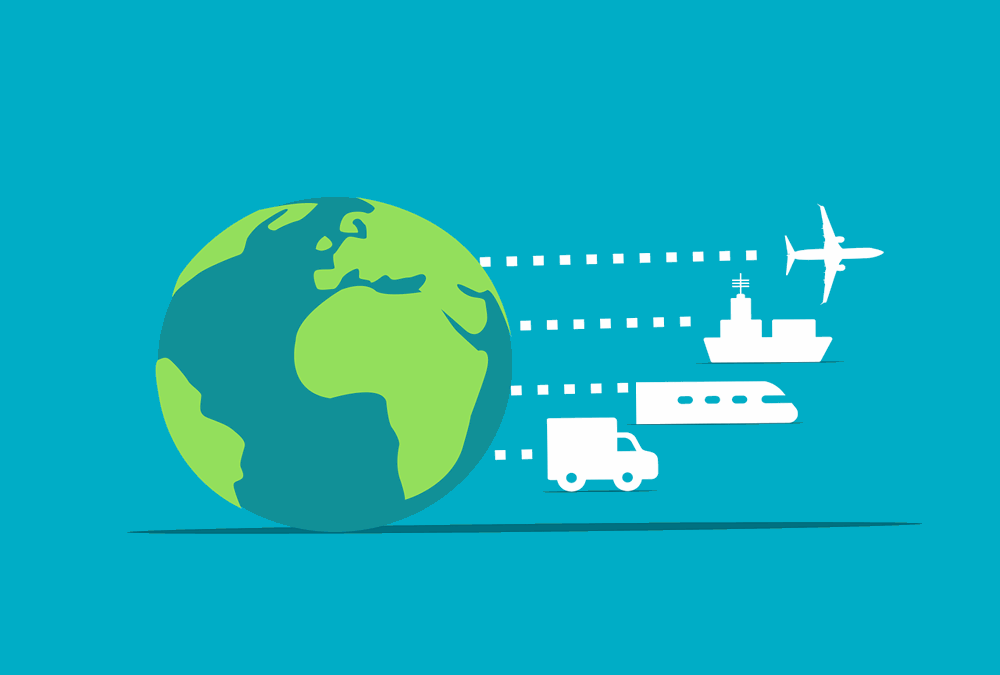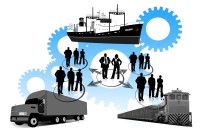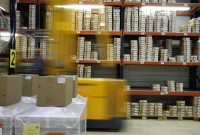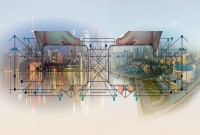- Home
- Business Processes
- Industry Knowledge
- Aerospace Industry
- Automotive Industry
- Banking Domain
- BFSI Industry
- Consumer/ FMCG Industry
- Chemicals Industry
- Engineering & Construction
- Energy Industry
- Education Domain
- Finance Domain
- Hospitality Domain
- Healthcare Industry
- Insurance Domain
- Retail Industry
- Travel and Tourism Domain
- Telecom Industry
- Leadership Skills
- eLearning
- Home
- Business Processes
- Order to Cash
- Distribution Network Planning
Distribution Network Planning
To stay competitive in today’s tough market, the location of your warehouse is vital. To grow retail business need to offer to customers faster and affordable shipping time, which is dependent on the warehousing location as the location of the warehouse affects the transit time to ship orders to customers.
Distribution network planning determines how many warehouses or distribution centers a company requires to satisfy its customer base, as well as where those warehouses should be located.
Warehousing Location
To stay competitive in today’s tough market, the location of your warehouse is vital. To grow retail business need to offer to customers faster and affordable shipping time, which is dependent on the warehousing location as the location of the warehouse affects the transit time to ship orders to customers. Warehouse location affect the accessibility of business and its products to customers. The site and building need to meet the size, infrastructure, and capacity requirements of your retail business. When choosing your warehouse, also consider the volume of products and seasonal variations.
Some other considerations are:
- The number of products using the warehouse
- The type of demand for each product, how much it varies, average order size, and so on
- Physical features of the products, particularly size and weight
- Special storage conditions, such as climate control, packaging, and so on
- Target customer service level
- Lead times from suppliers and promised to customers
- Economies of scale
- Type of material handling equipment
- Layout of storage and related facilities.
Related Links
You May Also Like
-
Business Case of Multiple Warehouses
Adding extra warehouses to business provides many benefits such as reducing shipping costs, increasing storage capacity, and having warehouses for specific purposes to simplify overall warehouse management. Multiple warehouses allow you to organize your inventory in a way that helps your business be more effective.
-
At a high level, the essential elements in a warehouse are an arrival bay, a storage area, a departure bay, a material handling system and an information management system. As part of the process for enabling a warehouse layout, you must define warehouse zone groups, and zones, location types, and locations.
-
Warehouse management and distribution logistics involve the physical warehouse where products are stored, as well as the receipt and movement of goods takes place. Warehouse management aims to control the storage and movement of products and materials within a warehouse. These operations include the receipting of inwards goods, tracking, stacking and stock movement through the warehouse.
-
In the normal course of business, customers are likely to return orders from time to time due to various reasons and business should design processes the manage and accept such returns. A well designed returns management process can reduce costs and issues associated with returns or exchanges.
-
When a customer wants a product that has been stored in the warehouse, the same need to be picked off the shelf (or off the floor) and get it ready for shipping. Depending on how big is the warehouse, picking can take a while. (Many distribution centers cover more than 1 million square feet.). Hence, warehouse order picking methods are an important aspect within any warehouse.
-
One of the warehousing best practices that retailers like Walmart, Amazon, and Target have adopted is known as cross-docking. During this process the inbound products are unloaded at a distribution center and then sorted by destination, and eventually reloaded onto outbound trucks. In real parlance, the goods are not at all warehoused but just moved across the dock (hence the name).
-
Miscellaneous Warehouse Processes
At the end of each inventory control, the Contractor provides the Ordering Person with an inventory report which contains a list of all stock adjustments. The Ordering Person uses the report to create, by use of his/her own means, necessary value and accounting adjustments related to the stock. Let us look at some to the mislaneous warehouse processes not covered earlier.
-
To stay competitive in today’s tough market, the location of your warehouse is vital. To grow retail business need to offer to customers faster and affordable shipping time, which is dependent on the warehousing location as the location of the warehouse affects the transit time to ship orders to customers.
-
Before shipping, businesses need to make sure that the items will arrive in good condition. Packaging is a form of protection against environmental threats that the product will face from the time it leaves warehouse facility until the time it reached the customer. The packaging is intended to provide protection for the item as it is being handled in the warehouse or when the item is being shipped.
-
Warehouses may seem like a simple, straightforward concept, but they actually include a variety of different types of warehouses that all have their own niche. The type of warehousing that’s right for you depends on your specific industry, location, and needs. From private warehousing, distribution centers, and climate-controlled warehouses, there’s an option to suit every business.
Explore Our Free Training Articles or
Sign Up to Start With Our eLearning Courses

About Us
Learning
© 2023 TechnoFunc, All Rights Reserved









